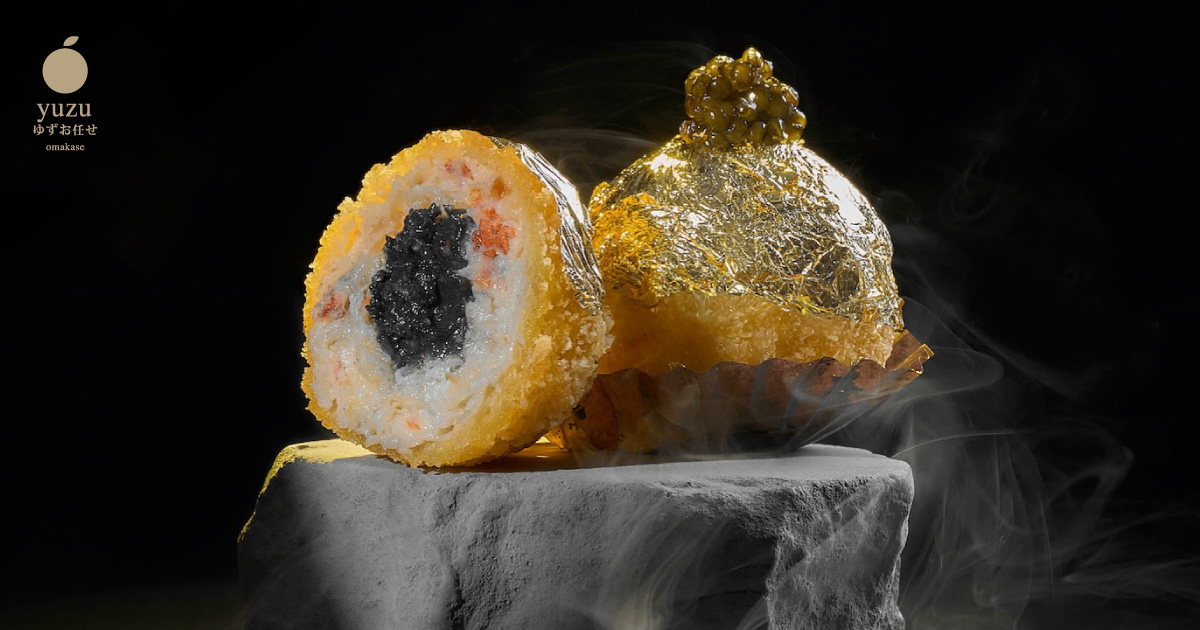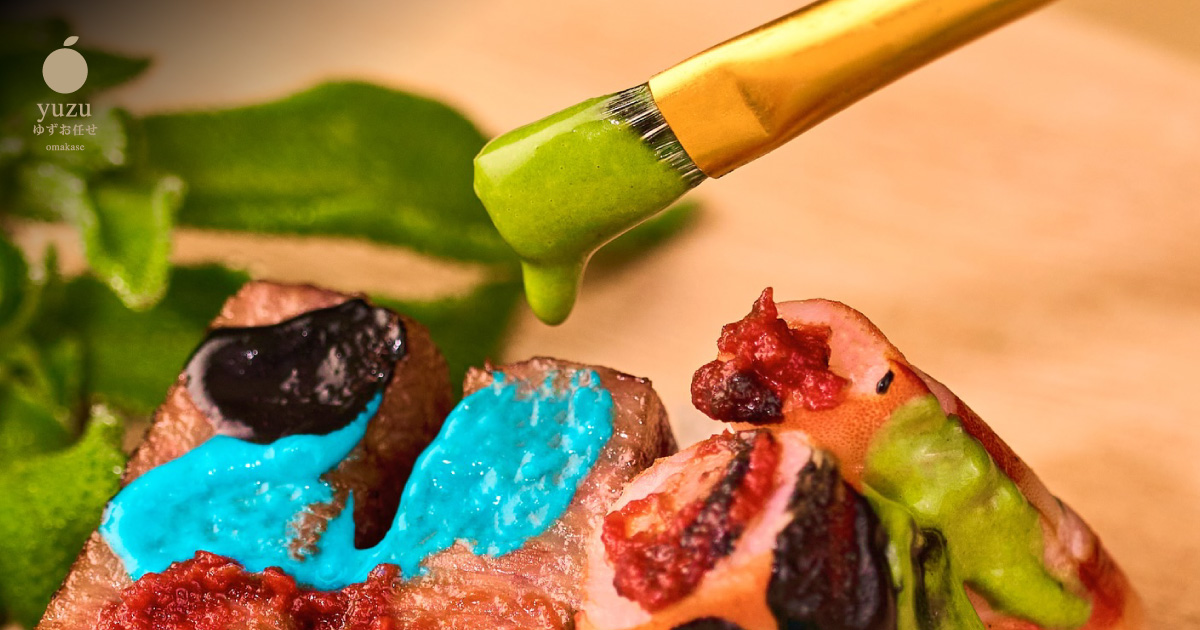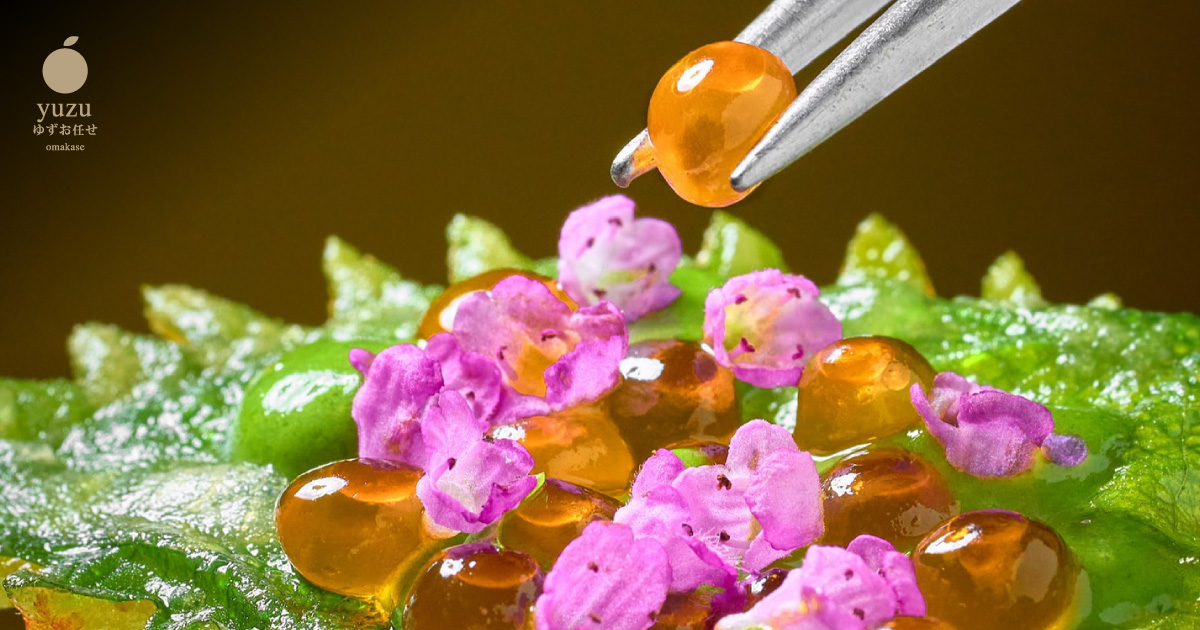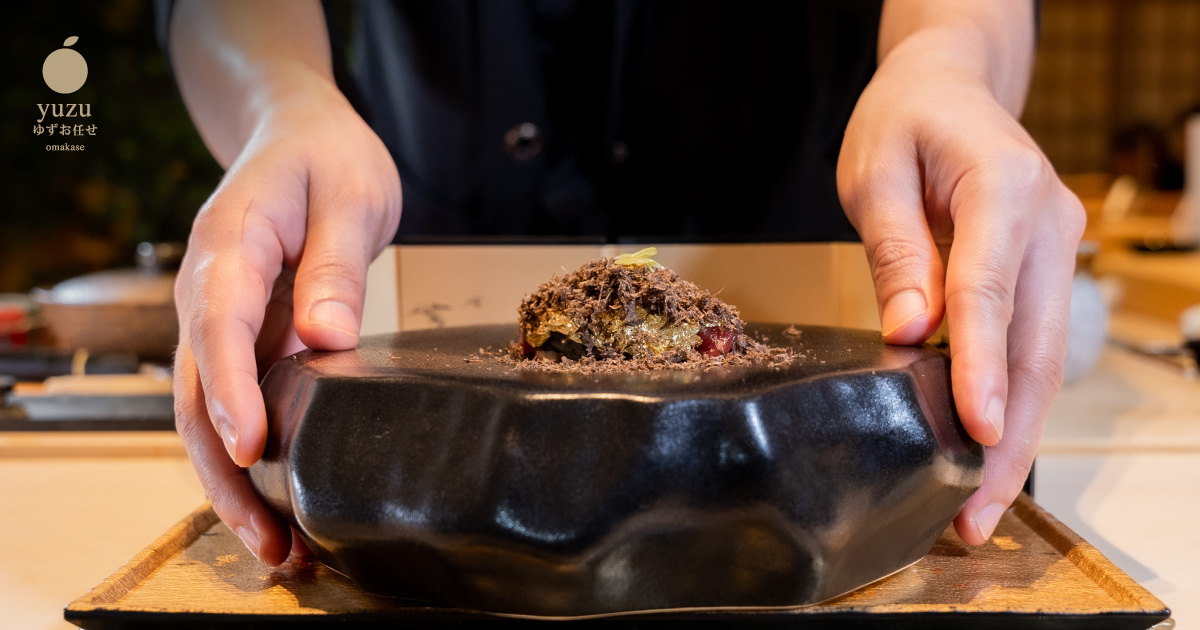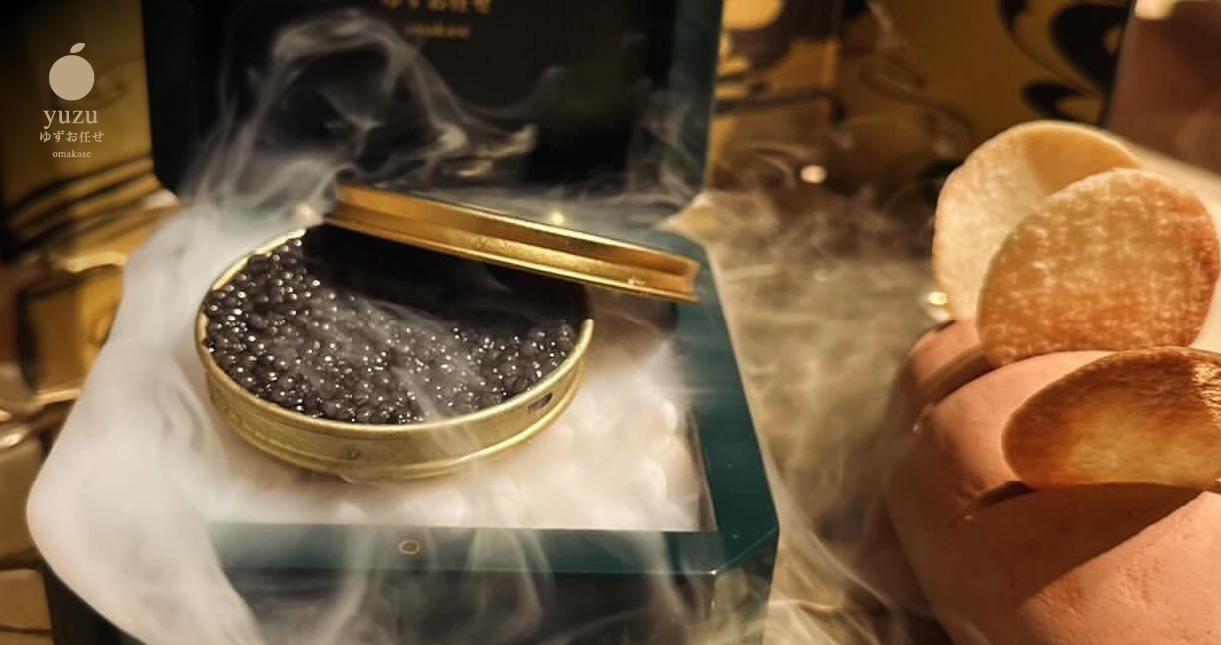
Art on a Plate: The Visual Presentation of Dishes at Yuzu Omakase
At Yuzu Omakase, dining is more than just a culinary experience—it’s an encounter with art. Each dish served is a testament to the mastery of visual presentation, where ingredients are carefully arranged to create not just a meal, but a work of art. The aesthetic appeal of these dishes plays a crucial role in the overall dining experience, engaging the senses and elevating the flavors through stunning visual storytelling. This article delves into the artistry involved in the plating and presentation of dishes at Yuzu Omakase, where food transcends its role as nourishment to become an exquisite expression of creativity.
Our Creations ● 2024 Sep 10
Art on a Plate: The Visual Presentation of Dishes at Yuzu Omakase
The Philosophy Behind Visual Presentation
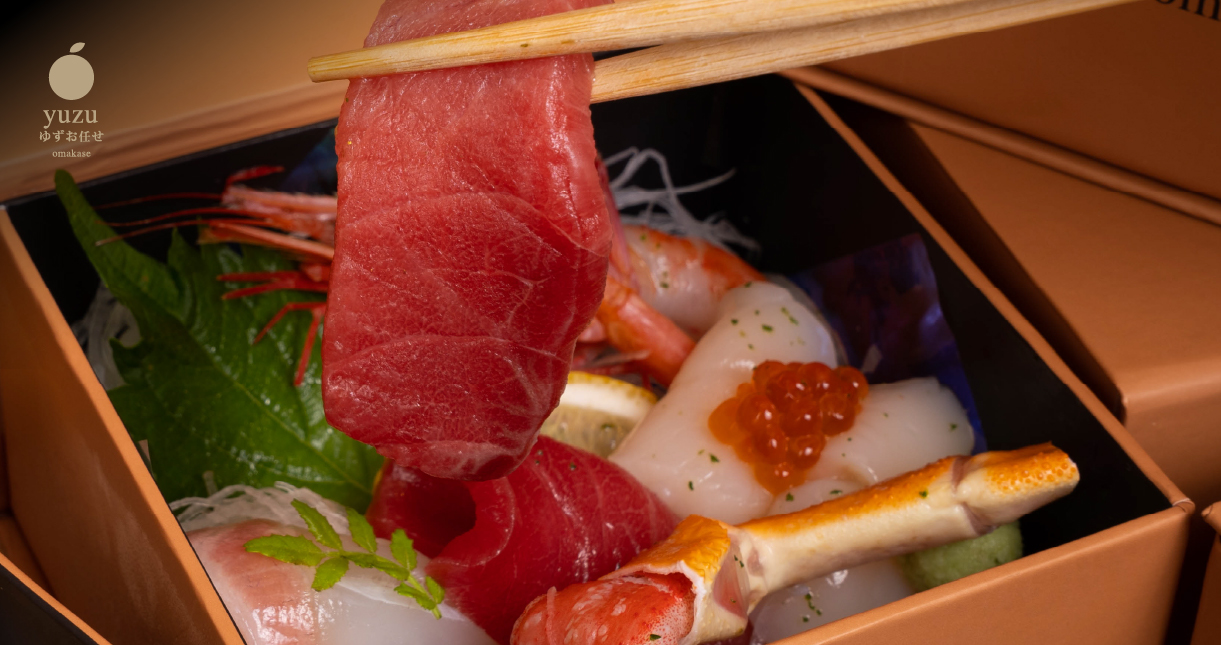
Aesthetic Balance and Harmony
The visual presentation of food at Yuzu Omakase is deeply rooted in the Japanese philosophy of balance and harmony. This approach ensures that every dish is not only pleasing to the eye but also reflective of the harmony between flavors, textures, and colors.
Color Palette
The use of color is intentional and thoughtful. Bright, fresh ingredients like the deep red of Maguro (Tuna) or the vibrant orange of Ikura (Salmon Roe) are paired with more subdued elements such as the soft white of sushi rice or the earthy tones of nori (seaweed). This balance creates a visual appeal that draws the eye and prepares the palate for the flavors to come.
Symmetry and Asymmetry
Traditional Japanese aesthetics often play with symmetry and asymmetry to create visual interest. At Yuzu Omakase, dishes may feature perfectly symmetrical arrangements, while others embrace the natural beauty of asymmetry, allowing the organic shapes of ingredients to guide the presentation.
Minimalism and Precision
Minimalism is a hallmark of Japanese cuisine, and this is clearly reflected in the presentation at Yuzu Omakase. Every element on the plate serves a purpose, contributing to the overall aesthetic and flavor of the dish without unnecessary embellishments.
Clean Lines and Simple Forms
The presentation of dishes often involves clean lines and simple forms that emphasize the natural beauty of the ingredients. This minimalist approach allows the quality and freshness of the ingredients to take center stage.
Precise Placement
Each component of a dish is placed with precision, often with the help of tweezers or other specialized tools. This attention to detail ensures that every plate looks as though it was designed by an artist, with each ingredient perfectly positioned to enhance the dish’s visual and culinary impact.
The Process of Creating Visual Masterpieces
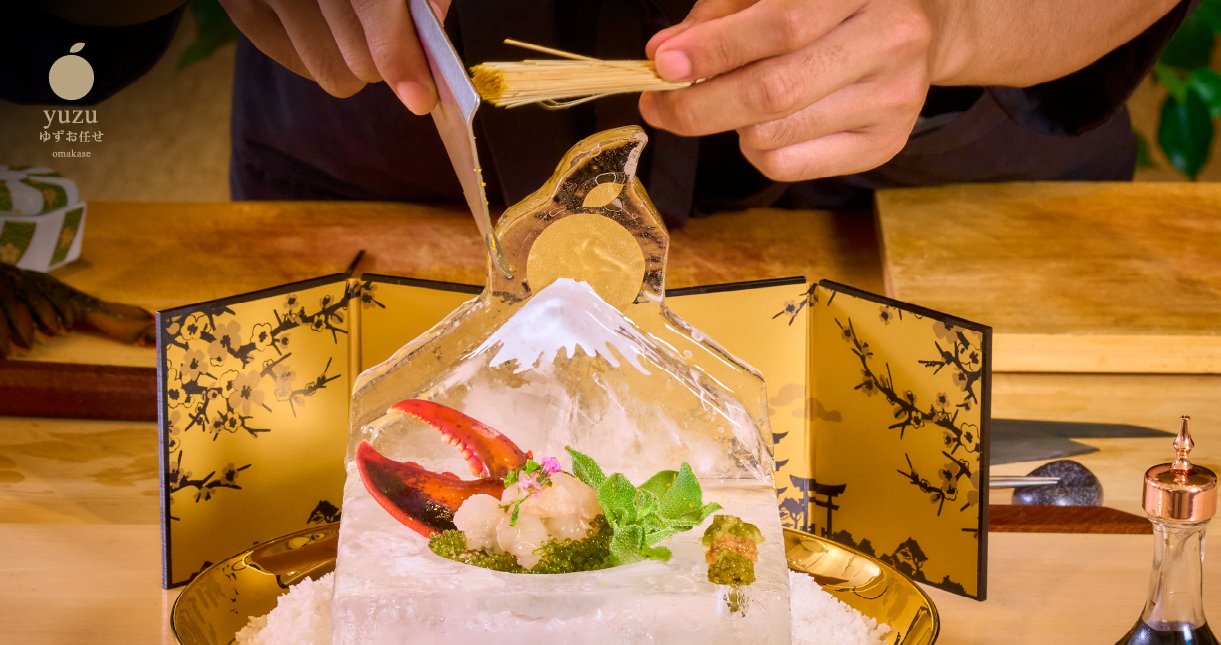
Inspiration from Nature
Nature is a significant source of inspiration for the chefs at Yuzu Omakase. The colors, patterns, and textures found in nature often influence the plating of dishes, creating a connection between the food and the natural world.
Seasonal Themes
The presentation often reflects the season in which the ingredients are harvested. In spring, you might see delicate blossoms or bright green herbs adorning the plate, while autumn might bring deeper, earthier tones and garnishes that evoke the changing leaves.
Natural Elements
Ingredients are often arranged to mimic natural landscapes, such as a piece of fish that resembles a river flowing over stones made of pickled vegetables or garnishes that evoke the petals of a flower. These designs are not only visually stunning but also create a deeper connection to the environment from which the ingredients are sourced.
The Role of Tools and Techniques
Just as a painter uses brushes and a sculptor uses chisels, the chefs at Yuzu Omakase use a variety of tools and techniques to achieve their artistic vision on the plate.
Knives
The art of knife work is central to Japanese cuisine, and it plays a crucial role in the presentation of dishes at Yuzu Omakase. Chefs use specialized knives to create precise cuts that enhance the texture and appearance of the fish. The thin, delicate slices of sashimi, for example, are a result of expert knife skills that ensure each piece is uniform and visually appealing.
Molds and Stencils
For more intricate designs, chefs may use molds or stencils to create patterns with sauces or finely chopped ingredients. These tools allow for the creation of consistent shapes and patterns that add a decorative touch to the plate.
Tweezers
Precision tweezers are often used to place delicate garnishes or arrange microgreens on the plate. This level of detail ensures that even the smallest components are perfectly positioned, contributing to the overall visual harmony of the dish.
Layering and Composition
The composition of each dish is carefully considered to create layers of visual interest. This layering technique not only enhances the aesthetic appeal but also influences the dining experience by guiding the diner through different textures and flavors.
Depth and Dimension
By layering ingredients at different heights or arranging them in a way that creates depth, chefs at Yuzu Omakase add dimension to the plate. This approach draws the eye across the dish and encourages the diner to explore each element individually.
Balance of Texture
Visual texture is just as important as flavor and mouthfeel. Crispy elements like tempura flakes may be placed alongside smooth, glossy slices of fish, creating a contrast that is pleasing to both the eye and the palate.
Signature Dishes: Art in Every Bite

Uni Abuta Toast Truffle
One of Yuzu Omakase’s signature dishes, the Uni Abuta Toast Truffle, exemplifies the artistry of plating. This dish features a delicate balance of color, texture, and flavor, with the golden hue of uni (sea urchin) contrasting beautifully against the deep, earthy tones of truffle.
Presentation
The uni is carefully arranged atop a perfectly toasted slice of bread, with a drizzle of truffle oil adding a luxurious sheen. The dish is garnished with microgreens and edible flowers, adding a pop of color and a touch of elegance.
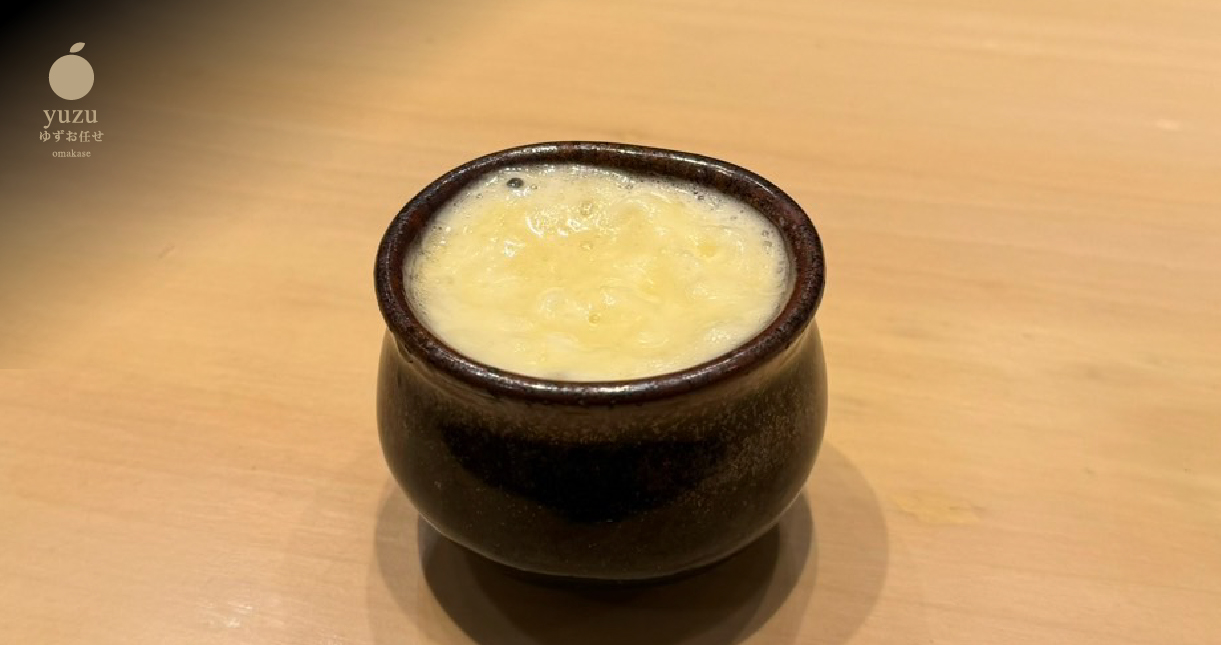
Miso Cappuccino Soup
The Miso Cappuccino Soup is a playful take on a traditional Japanese dish, presented in a way that mimics a classic cappuccino. This dish showcases the creativity and innovation of the chefs at Yuzu Omakase.
Presentation
Served in a small cup, the soup features a frothy miso “foam” on top, with a dusting of matcha powder resembling the foam art of a cappuccino. This whimsical presentation delights the diner’s senses even before they take their first sip.
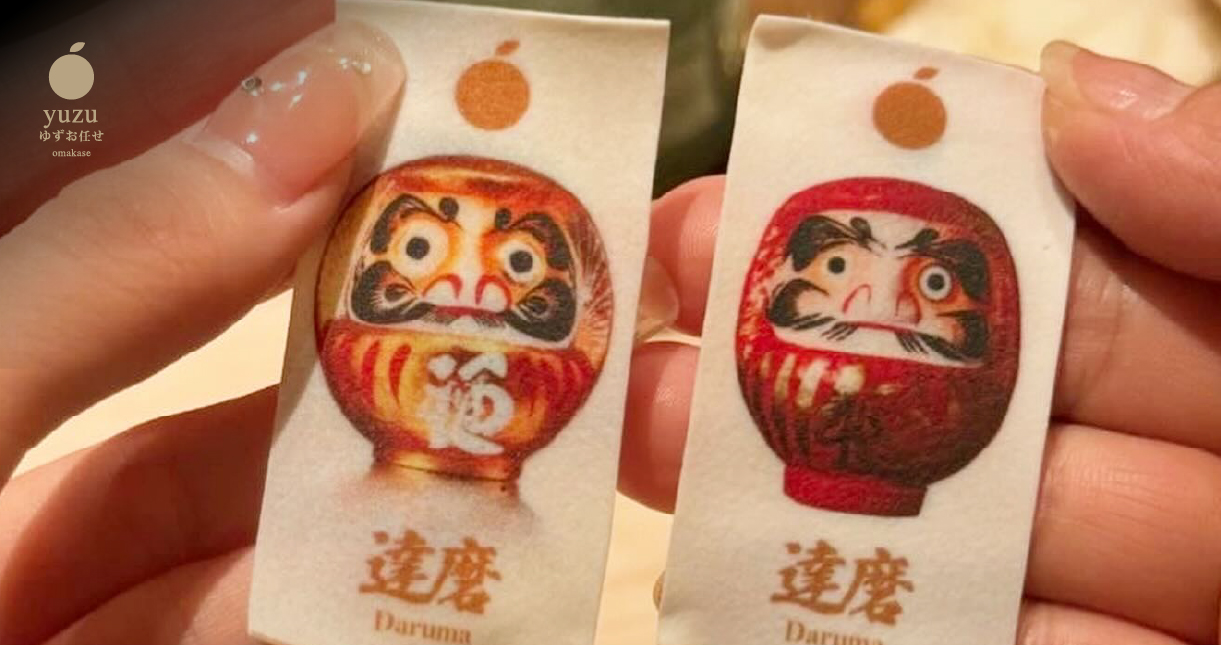
Edible Canvas
The Edible Canvas is a true masterpiece that blurs the line between food and art. This dish allows the chef to express their creativity fully, using the plate as a canvas and the ingredients as paint.
Presentation
The dish features an array of colors and textures, with each component carefully placed to create a visually stunning composition. From vibrant splashes of sauce to delicately arranged edible flowers, every element contributes to a dish that is as beautiful as it is delicious.
The Impact of Visual Presentation on the Dining Experience
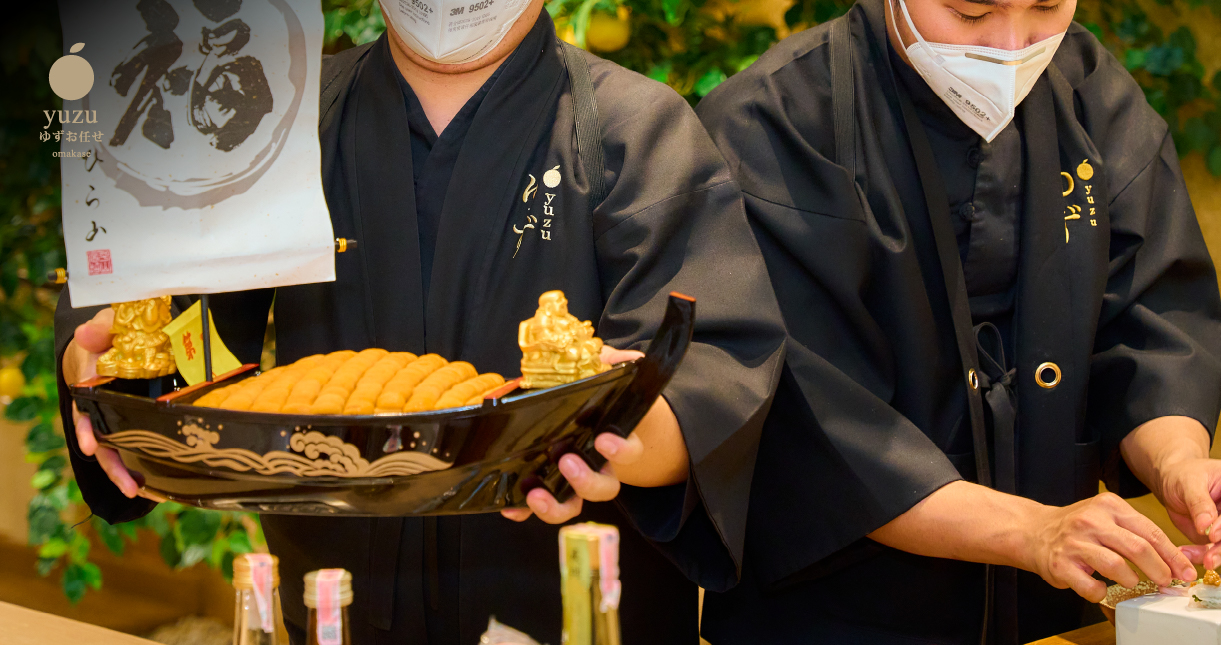
Engaging the Senses
The visual presentation of food at Yuzu Omakase is designed to engage all the senses, enhancing the overall dining experience. Before the first bite is even taken, the visual appeal of the dish sets the stage for the flavors to come.
Anticipation and Excitement
The artistic presentation of each dish builds anticipation and excitement, inviting diners to savor the visual beauty before experiencing the taste. This engagement of multiple senses creates a more immersive and memorable dining experience.
Appreciation of Craftsmanship
The meticulous attention to detail in the plating of each dish fosters an appreciation for the craftsmanship involved. Diners can see the skill and creativity that goes into each dish, deepening their connection to the meal and the chefs who prepared it.
Storytelling Through Food
At Yuzu Omakase, each dish tells a story through its presentation. Whether it’s a reflection of the season, an homage to nature, or an exploration of color and form, the visual elements of the dish convey meaning and emotion.
Cultural Narratives
The presentation of sushi and other dishes often incorporates elements of Japanese culture and traditions. For example, the arrangement of seasonal ingredients may tell a story about the time of year or a particular region of Japan, offering diners a deeper understanding of the cultural significance behind the food.
Personal Expression
The chefs at Yuzu Omakase are not just cooks; they are artists expressing their vision and creativity through food. The presentation of each dish is a reflection of their personal style and culinary philosophy, making the dining experience a unique and personal journey.
Conclusion
At Yuzu Omakase, the visual presentation of dishes is an integral part of the dining experience, transforming each plate into a work of art. The careful consideration of color, texture, and composition, combined with a deep respect for traditional Japanese aesthetics, results in dishes that are as visually stunning as they are delicious. Whether it’s the delicate arrangement of sashimi or the playful presentation of a modern twist on a classic dish, the artistry involved in plating at Yuzu Omakase elevates the meal to a new level of sensory delight. Plan your visit to Yuzu Omakase and discover how the beauty of food can enhance both the palate and the soul.

RELATE
-
A Culinary Ballet: The Precision and Passion Behind Omakase Bangkok
In the world of fine dining, few experiences rival the elegance of omakase. At Yuzu Omakase Thailand, each course is a choreographed performance—where discipline, detail, and devotion turn every moment into a graceful, unforgettable ballet.
Our Creations ● 2025 Jul 8
-
How Yuzu Omakase Thailand Perfects the Art of Minimalist Luxury Cuisine
At Yuzu Omakase Thailand, the less-is-more philosophy is not just a design choice—it’s a culinary principle. Here, every detail is intentional, and every bite tells a story of precision, purity, and refined indulgence.
Our Creations ● 2025 Jul 7
-
From the Sushi Counter: A Live Omakase Experience in Siam Square
More than a meal, it is a performance. At Yuzu Omakase Thailand, the sushi counter becomes a stage, and every movement of the chef is a carefully choreographed act of mastery. Welcome to Bangkok’s most refined culinary theater.
Our Creations ● 2025 May 27



